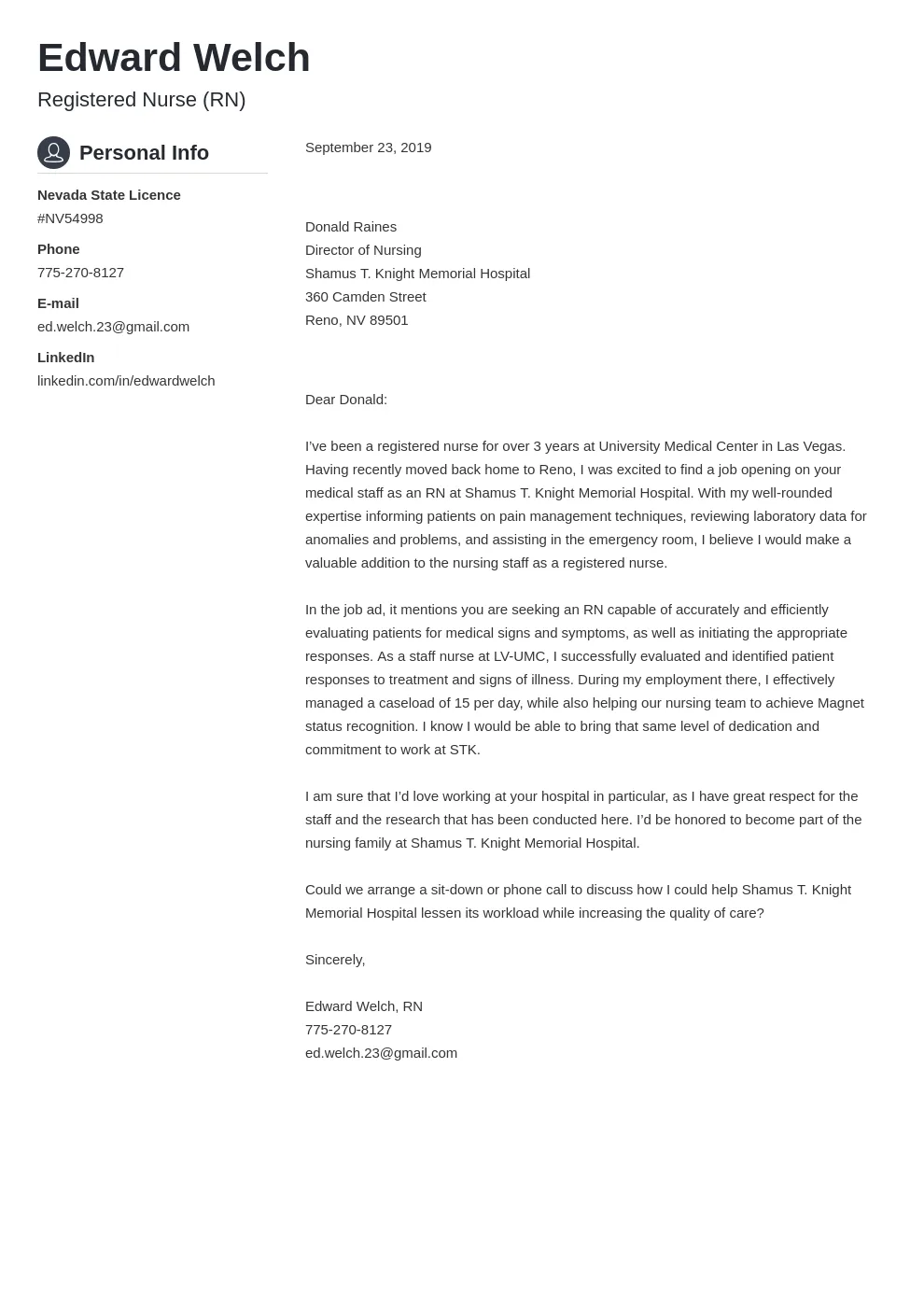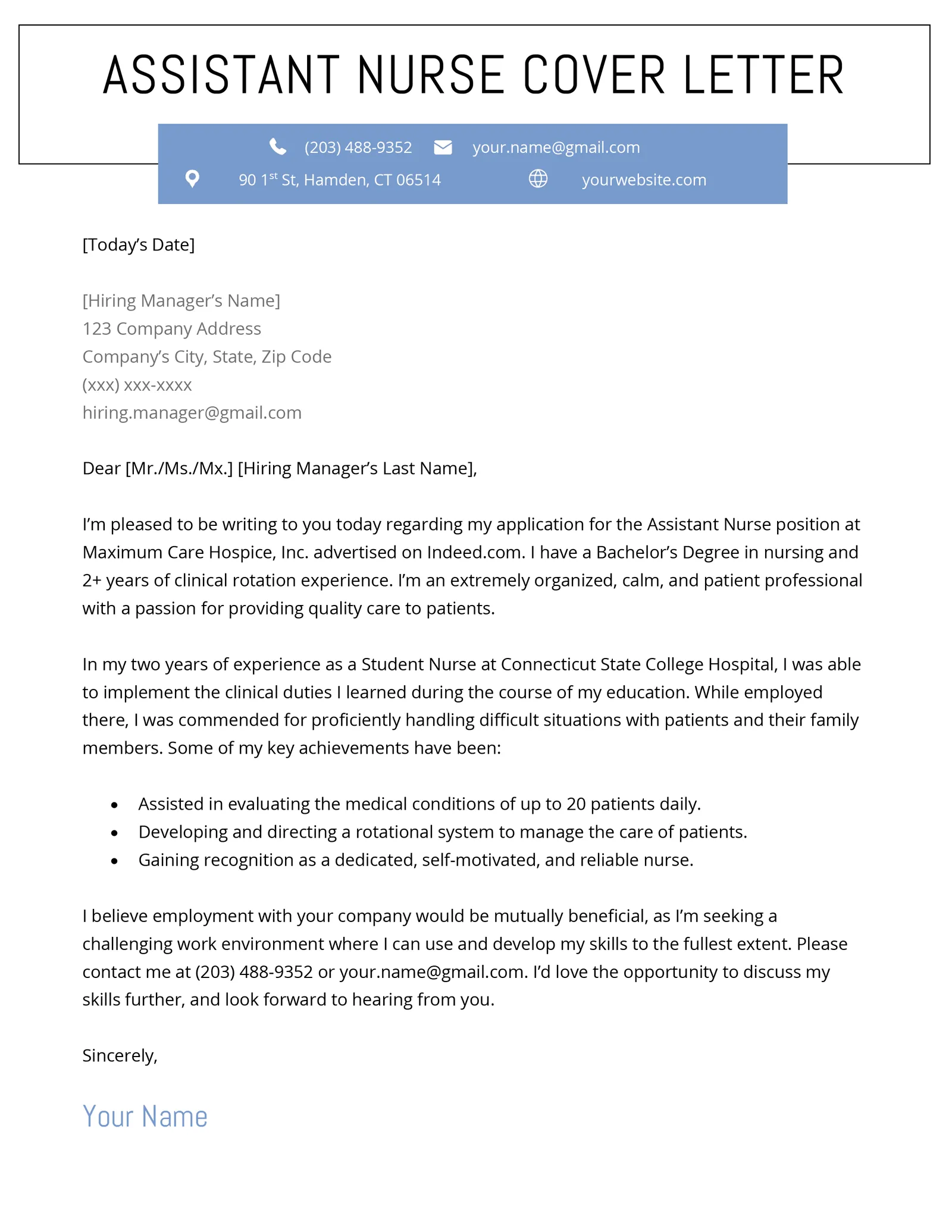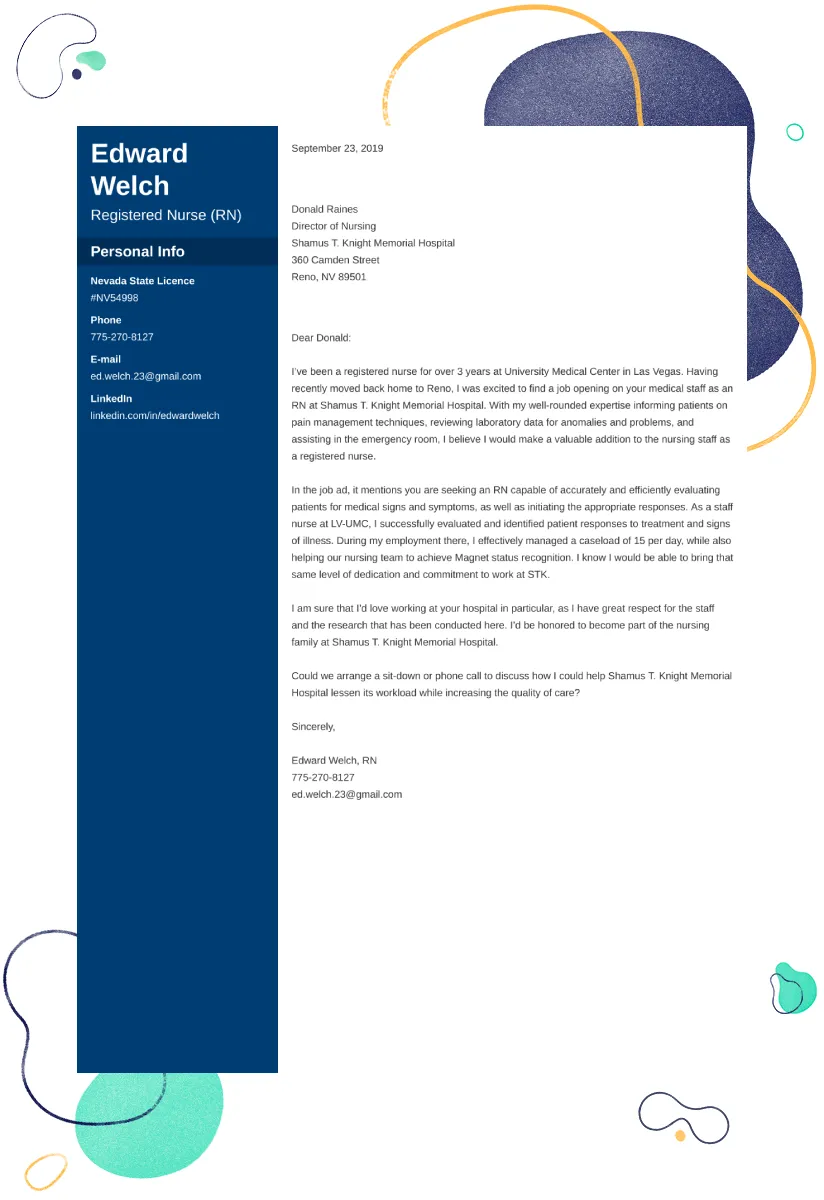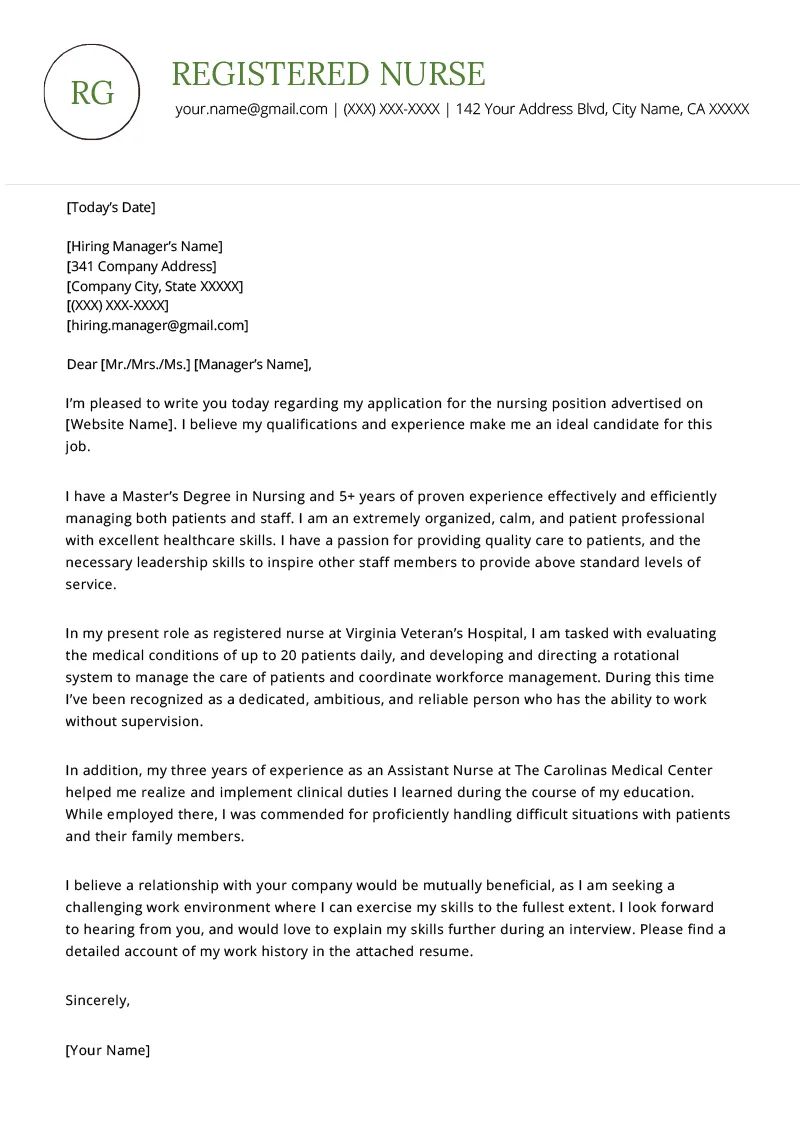Crafting a Winning Nursing Cover Letter
A nursing cover letter is your first impression, a chance to showcase your skills and passion. It’s more than just a formality, it’s a strategic document that can set you apart from other applicants. By effectively communicating your qualifications and enthusiasm, you can significantly increase your chances of landing an interview. Your cover letter should complement your resume, providing a narrative that highlights your key strengths and aligns with the specific requirements of the job. A well-crafted cover letter demonstrates your attention to detail and genuine interest in the position and the healthcare facility.
Research the Healthcare Facility
Before you start writing, research the healthcare facility. Understand their mission, values, and recent achievements. This knowledge will help you tailor your cover letter to their specific needs and demonstrate your genuine interest. Visit their website, read news articles, and check social media to gather information. This shows you are serious about the opportunity and have taken the time to learn about the organization. Mentioning specific programs, initiatives, or values that resonate with you demonstrates that you’re not just sending a generic application, but are genuinely interested in joining their team. This also allows you to demonstrate how your skills and experience align with their specific needs and goals.
Highlight Relevant Nursing Skills

Identify the key skills required for the nursing position and highlight your relevant abilities. These skills may include clinical expertise, communication, critical thinking, and teamwork. Provide specific examples of how you’ve utilized these skills in previous roles. For example, if the job description emphasizes patient education, share an instance where you successfully educated a patient about their medication or condition. When providing these examples, use the STAR method (Situation, Task, Action, Result) to clearly outline your experience and demonstrate your capabilities. This approach makes your achievements more tangible and easier for the hiring manager to understand the value you bring to the table. Tailor your skills to the job by using keywords from the job description.
Assess Your Nursing Experience
Carefully assess your nursing experience and identify the most relevant aspects to showcase. Think about your roles, responsibilities, and the types of patients you’ve worked with. Consider the specific settings where you have experience, such as hospitals, clinics, or home healthcare environments. Highlight any specialized training or certifications you possess, such as certifications in critical care, oncology, or geriatrics. Tailor your experience to match the needs of the position, emphasizing any experience that aligns with the requirements of the job description. Focus on the aspects of your career that best position you for the role.
Quantify Your Accomplishments
Use numbers and data to quantify your accomplishments and demonstrate the impact you’ve made in previous roles. Instead of saying “Improved patient care,” state “Improved patient satisfaction scores by 15% through implementing a new communication protocol.” Quantifying your accomplishments makes them more impactful and easier for the hiring manager to understand. Use metrics like the number of patients you’ve cared for, the reduction in medication errors, or the increase in patient adherence to treatment plans. This provides concrete evidence of your abilities and demonstrates your effectiveness as a nurse. This also showcases your ability to analyze and interpret data, an important skill in healthcare.
Showcase Patient Care Experience

Nursing is fundamentally about patient care, so highlight your experience in this area. Describe your approach to patient care, emphasizing your empathy, compassion, and ability to build rapport. Provide specific examples of how you’ve positively impacted patients’ lives, such as by improving their comfort, reducing their anxiety, or helping them achieve their health goals. Demonstrate your ability to provide holistic care, addressing the physical, emotional, and psychological needs of your patients. Highlight your experience working with diverse patient populations and adapting your care to meet their individual needs. Showcasing your ability to provide excellent patient care is crucial.
Tailor Your Cover Letter to the Job
Avoid sending a generic cover letter. Tailor your cover letter to each specific job application. Carefully review the job description and identify the key requirements and qualifications. Then, customize your letter to address those specific needs. Highlight the skills and experiences that are most relevant to the position, and use the language and keywords from the job description. This shows that you have taken the time to understand the requirements of the role and that you are a good fit for the organization. By tailoring your cover letter, you increase your chances of capturing the hiring manager’s attention and securing an interview.
Use Keywords from the Job Description
Carefully review the job description and identify keywords related to skills, experience, and qualifications. Integrate these keywords naturally into your cover letter to optimize it for applicant tracking systems (ATS) and to demonstrate that you meet the requirements of the position. Use the same language and terminology as the job posting to make sure your application aligns with what the employer is looking for. By using keywords, you increase the likelihood that your cover letter will be noticed by recruiters and hiring managers. Do not just stuff keywords; use them strategically and in context to make your letter readable and compelling.
Demonstrate Your Passion for Nursing

Show your enthusiasm for nursing and your commitment to the profession. Express your passion for helping others and making a difference in patients’ lives. Mention what motivates you in your career and why you enjoy nursing. Share any personal experiences or values that have drawn you to the field. By demonstrating your passion, you convey your commitment and dedication, which are essential qualities in a nursing role. Let the hiring manager know why you chose this career path and what drives you to provide exceptional care.
Proofread Your Nursing Cover Letter
Before submitting your cover letter, carefully proofread it for any errors in grammar, spelling, and punctuation. Errors can create a negative impression and detract from your qualifications. Read your letter aloud to catch any awkward phrasing or unclear sentences. Consider asking a friend, family member, or career counselor to review your cover letter for feedback. Proofreading is a crucial step in ensuring that your cover letter is polished and professional. This demonstrates your attention to detail and commitment to presenting yourself in the best possible light. Ensuring your cover letter is free of errors can greatly improve your chances of getting an interview.
Formatting Your Cover Letter for Success
The format of your cover letter is important for readability and professionalism. Use a standard font like Times New Roman or Arial, and maintain a consistent font size (usually 11 or 12 points). Use clear and concise language, and keep your paragraphs brief to avoid overwhelming the reader. Use headings and bullet points to break up large blocks of text and make it easier to scan. Keep the cover letter to one page, as hiring managers often have limited time to review applications. Ensure your cover letter is visually appealing and easy to read. By following these formatting guidelines, you’ll make a positive impression and increase your chances of success.
